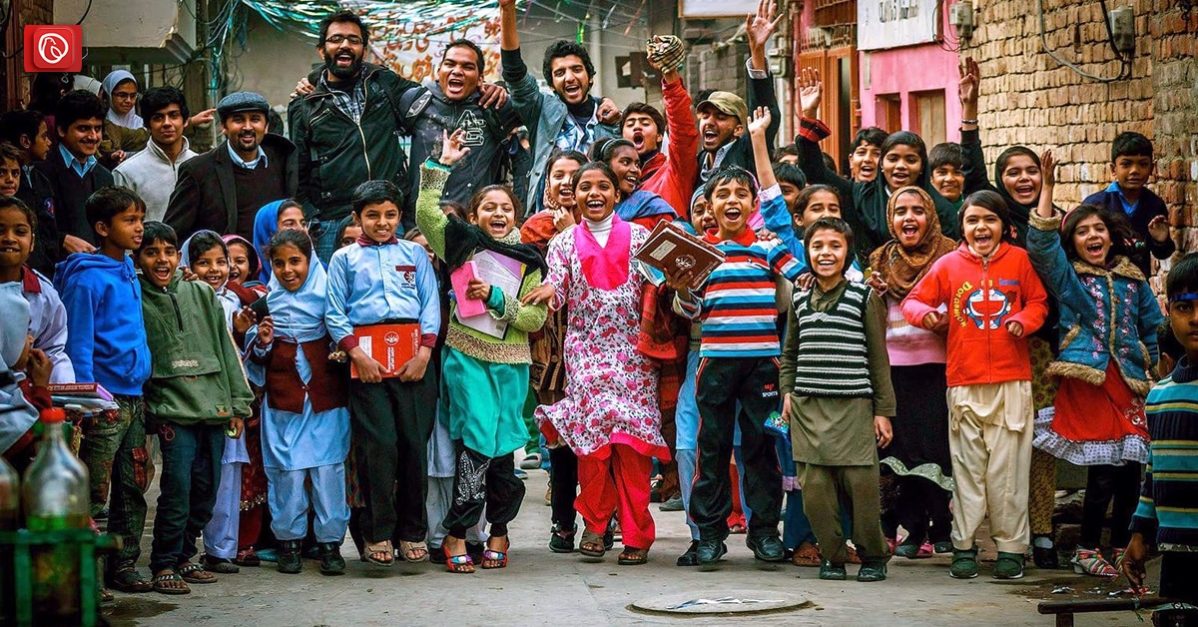
Source: Graana.com
In the bustling cities of Pakistan, amidst towering skyscrapers, lie the forgotten communities of slum areas. Inadequate infrastructure and limited access to basic facilities hinder the educational opportunities and future prospects of these impoverished neighbourhoods. However, initiatives like TameerSeTaleem, the ideation of IMARAT Group of Companies, are working tirelessly to break the cycle of poverty and empower these children through education.
In this blog, Graana.com explores the challenges faced by school-going children in Pakistan’s slum areas, the transformative effects of TameerSeTaleem, and IMARAT’s commitment to sustainability.
Thousands of marginalized families call slum areas in Pakistan home, facing social problems in the form of little to no access to educational and health facilities, food insecurity, inequality, and more. Along with construction waste piled up in these areas, the children in these communities are either forced to travel long distances to substandard schools or completely forgo education.
Additionally, the financial burden on these families drives many children into child labour, depriving them of their right to education and the chance to build a better future for themselves.
Here are some of the main issues that students belonging to the slums of Pakistan face:
In many slum communities, the absence of nearby schools or the limited capacity of existing schools makes it difficult for children to attend classes regularly. They often have to travel long distances, which can be both physically demanding and unsafe, leading to irregular attendance and dropouts.
Moreover, the quality of education in these schools is often compromised due to overcrowded classrooms, lack of trained teachers, and inadequate learning materials. The absence of libraries, computer labs, and other essential resources further hinders the education of these children. Without access to quality education, their ability to acquire essential knowledge and skills becomes severely limited, impacting their long-term prospects.
Many families living in slums struggle to make ends meet, often earning meagre incomes from informal or low-wage jobs. As a result, they are unable to afford the expenses associated with education, including school fees, uniforms, books, and transportation.
In such circumstances, children in the slum areas of Pakistan often experience a compulsion to contribute to the family’s income by engaging in child labour. Instead of attending school, they have to work in hazardous conditions or engage in menial jobs to help support their families. The burden of child labour not only deprives them of their right to education but also exposes them to exploitation, abuse, and health risks, perpetuating the cycle of poverty.
Slum areas in Pakistan suffer from inadequate infrastructure and little access to basic facilities, further impacting the education of school-going children. These include a lack of clean drinking water, proper sanitation, and electricity. The absence of these essential services not only affects the overall living conditions but also hampers the learning environment for children.
Inadequate infrastructure also means that schools in slum areas often lack proper classrooms, furniture, and recreational spaces. The absence of a conducive learning environment can lead to distractions, discomfort, and a lack of motivation among students. Additionally, the absence of safe and well-maintained school buildings can pose a threat to the physical safety of the children, further deterring their access to education.
The TameerSeTaleem Initiative is a transformative project that aims to address two critical issues simultaneously: the proper disposal of construction waste and the rehabilitation of underprivileged schools. The idea behind this initiative is to utilise leftover construction materials, which are often discarded after building projects, and repurpose them to improve the learning environment of disadvantaged schools.
IMARAT, the driving force behind TameerSeTaleem, is dedicated to sustainable development. Recently, it made a significant stride towards environmental consciousness by launching the world’s tiniest carbon report, which highlights its efforts to reduce carbon emissions and mitigate its ecological footprint. By adopting sustainable practices, IMARAT aims to create a better future for the underprivileged communities in Pakistan.
To read more about its solutions regarding Katchi Abadis, visit Graana.com.
DUBAI: Pakistani real estate developers and representatives showcased a range of commercial and residential investment…
ISLAMABAD: Capital Development Authority (CDA) is currently undertaking a major Rs652 million project to upgrade…
Karachi – Mayor Barrister Murtaza Wahab has announced the launch of a citywide anti-encroachment operation…
ISLAMABAD: CDA Chairman Muhammad Ali Randhawa has directed the immediate restoration of 23 non-functional water…
ISLAMABAD: In a major relief for the real estate sector, the federal government has decided…
DHA Islamabad-Rawalpindi (DHAI-R), one of the most trusted names in Pakistan’s real estate landscape, is…